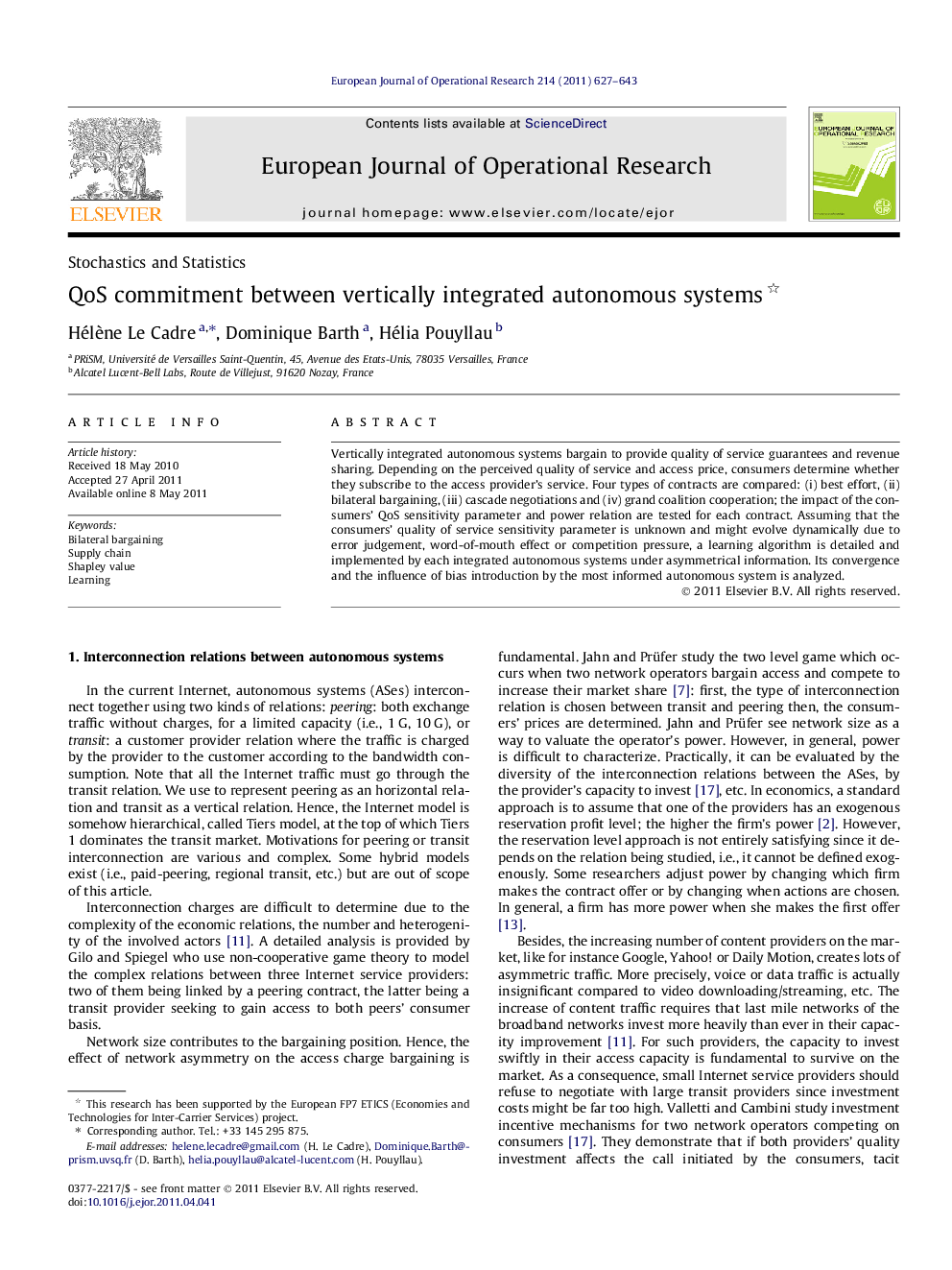| Article ID | Journal | Published Year | Pages | File Type |
|---|---|---|---|---|
| 476930 | European Journal of Operational Research | 2011 | 17 Pages |
Vertically integrated autonomous systems bargain to provide quality of service guarantees and revenue sharing. Depending on the perceived quality of service and access price, consumers determine whether they subscribe to the access provider’s service. Four types of contracts are compared: (i) best effort, (ii) bilateral bargaining, (iii) cascade negotiations and (iv) grand coalition cooperation; the impact of the consumers’ QoS sensitivity parameter and power relation are tested for each contract. Assuming that the consumers’ quality of service sensitivity parameter is unknown and might evolve dynamically due to error judgement, word-of-mouth effect or competition pressure, a learning algorithm is detailed and implemented by each integrated autonomous systems under asymmetrical information. Its convergence and the influence of bias introduction by the most informed autonomous system is analyzed.
► In this paper, we consider vertically integrated autonomous systems bargaining to provide quality of service (QoS) guarantees and revenue sharing. ► Four types of contracts are compared: (i) best effort, (ii) bilateral bargaining, (iii) cascade negotiations and (iv) grand coalition cooperation in order to test the influence of consumers’ QoS sensitivity and power relation. ► Assuming that the consumers’ QoS sensitivity parameter is unknown and might evolve dynamically, a learning algorithm is detailed and implemented by each integrated autonomous system under asymmetrical information. ► The learning algorithm convergence and the influence of bias introduction by the most informed autonomous system is analyzed.
